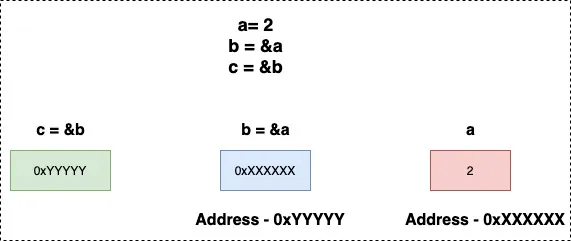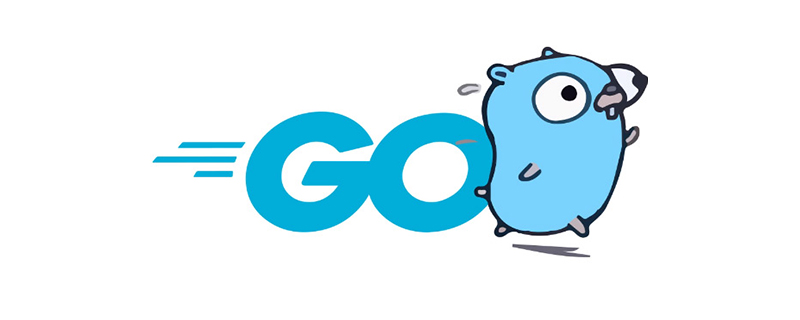 Backend Development
Backend Development Golang
Golang Reasons behind the cloud computing industry's growing preference for Golang
Reasons behind the cloud computing industry's growing preference for Golang
The cloud computing industry is increasingly inclined to adopt Golang
With the continuous development of cloud computing technology, more and more companies are beginning to adopt Golang as the main development language , this is no accident. Golang is an open source programming language developed by Google and is widely praised for its efficient performance, concise syntax and concurrency support. In the field of cloud computing, Golang's features make it one of the top choices for developers. This article will analyze why the cloud computing industry is increasingly inclined to adopt Golang and provide specific code examples to illustrate its advantages.
First of all, Golang has excellent performance. In cloud computing, performance is one of the crucial factors. Golang achieves efficient code execution and memory management through its excellent compiler and runtime system, enabling the developed applications to have excellent performance. The following is a simple Golang code example for calculating the Fibonacci sequence:
package main
import "fmt"
func fibonacci(n int) int {
if n <= 1 {
return n
}
return fibonacci(n-1) + fibonacci(n-2)
}
func main() {
fmt.Println(fibonacci(10))
}The above code shows the function in Golang that recursively calculates the Fibonacci sequence. Golang's concise syntax and efficient execution make such computing tasks efficient and fast.
Secondly, Golang’s concurrency support is also one of the reasons why the cloud computing industry chooses it. In cloud computing, large-scale data and requests are usually processed, and concurrent programming can effectively improve the performance and response speed of the system. Golang simplifies the complexity of concurrent programming through the goroutine and channel mechanisms, helping developers implement concurrent tasks more easily. The following is a simple concurrency example for calculating concurrent sums:
package main
import "fmt"
func sum(values []int, result chan int) {
sum := 0
for _, v := range values {
sum += v
}
result <- sum
}
func main() {
values := []int{1, 2, 3, 4, 5}
result := make(chan int)
go sum(values[:len(values)/2], result)
go sum(values[len(values)/2:], result)
res1, res2 := <-result, <-result
fmt.Println(res1 + res2)
}The above code shows an example of using Golang's goroutine and channel to implement concurrent sums. In this way, developers can use computing resources more efficiently and improve the processing power of the system.
In addition, Golang also has good scalability and convenient deployment methods. These characteristics also make it one of the preferred languages in the cloud computing industry. Golang's static linking and independent deployment features allow developers to easily package applications into executable files for easy deployment to different cloud environments. At the same time, Golang's simple package management system and automated build tools also provide convenience to the development team.
To sum up, the cloud computing industry is increasingly inclined to adopt Golang for many reasons, including excellent performance, concurrency support, good scalability and convenient deployment methods. As the cloud computing industry continues to develop, Golang will continue to play an important role in helping developers build efficient and stable cloud computing applications.
The above is the detailed content of Reasons behind the cloud computing industry's growing preference for Golang. For more information, please follow other related articles on the PHP Chinese website!
 聊聊Golang中的几种常用基本数据类型Jun 30, 2022 am 11:34 AM
聊聊Golang中的几种常用基本数据类型Jun 30, 2022 am 11:34 AM本篇文章带大家了解一下golang 的几种常用的基本数据类型,如整型,浮点型,字符,字符串,布尔型等,并介绍了一些常用的类型转换操作。
 肯睿Cloudera宣布新任大中华区副总裁Apr 09, 2024 pm 03:07 PM
肯睿Cloudera宣布新任大中华区副总裁Apr 09, 2024 pm 03:07 PM中国北京,2024年4月9日——企业大数据和人工智能平台公司肯睿Cloudera今日宣布任命新任大中华区副总裁。此举旨在进一步聚焦客户成功及业务转型,并通过提供混合多云大数据和大模型能力,助力企业适应大数据和人工智能应用的发展,加速数字化转型进程。肯睿Cloudera现任命刘汨春先生为大中华区副总裁(RVP),他将负责推动肯睿Cloudera在中国的进一步拓展,并主导战略性销售、渠道发展和本地化策略方向。肯睿Cloudera大中华区副总裁刘汨春此次新任高管的任命进一步彰显了肯睿Cloudera致
 为速度而生:PHP 与Golang 的合体 —— RoadRunnerSep 23, 2022 pm 07:40 PM
为速度而生:PHP 与Golang 的合体 —— RoadRunnerSep 23, 2022 pm 07:40 PM发现 Go 不仅允许我们创建更大的应用程序,并且能够将性能提高多达 40 倍。 有了它,我们能够扩展使用 PHP 编写的现有产品,并通过结合两种语言的优势来改进它们。
 谷歌与Golang关系逐渐疏远?分析行业趋势Mar 06, 2024 am 08:45 AM
谷歌与Golang关系逐渐疏远?分析行业趋势Mar 06, 2024 am 08:45 AM随着信息技术的快速发展和不断变革,各大科技公司都在不断调整自己的业务重心,以适应市场的需求和行业的趋势。谷歌和Golang之间的关系也在近年来出现了一些变化,一些迹象表明二者之间的联系正在逐渐疏远。接下来,我们将从几个方面对此现象进行分析。首先,Golang作为一种编程语言,在近年来逐渐崭露头角,受到越来越多开发者的青睐。Golang的简洁高效、并发性能强大
 Go语言的开源发展趋势Mar 07, 2024 pm 03:33 PM
Go语言的开源发展趋势Mar 07, 2024 pm 03:33 PMGo语言(Golang)作为一种新兴的编程语言,自诞生以来就备受关注。它由Google公司开发,于2009年首次发布,并在短短时间内迅速得到了程序员们的认可和喜爱。Go语言的设计初衷是要提高程序员的生产力,它融合了静态语言的性能和便捷性以及动态语言的灵活性,使得开发人员可以更加高效地编写各种类型的应用程序。由于其简洁、高效、易学的特点,Go语言在近年来逐渐成


Hot AI Tools

Undresser.AI Undress
AI-powered app for creating realistic nude photos

AI Clothes Remover
Online AI tool for removing clothes from photos.

Undress AI Tool
Undress images for free

Clothoff.io
AI clothes remover

AI Hentai Generator
Generate AI Hentai for free.

Hot Article

Hot Tools

SublimeText3 Chinese version
Chinese version, very easy to use

WebStorm Mac version
Useful JavaScript development tools

Zend Studio 13.0.1
Powerful PHP integrated development environment

SublimeText3 Linux new version
SublimeText3 Linux latest version

Safe Exam Browser
Safe Exam Browser is a secure browser environment for taking online exams securely. This software turns any computer into a secure workstation. It controls access to any utility and prevents students from using unauthorized resources.








